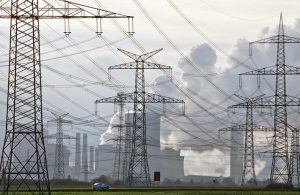German Finance Minister Christian Lindner has laid out plans for the country to spend €83.3 billion ($83.4 billion) on gas and electricity subsidies next year, according to a ministry document obtained by Bloomberg.
It shows €40.3 billion will be earmarked to cover the cost of gas and district heating, including a one-time payment in December for businesses and households.
A gas-price brake for homes is due to come into effect in March, but talks are underway with energy suppliers to assess if it’s possible to implement the measure sooner.
The remaining €43 billion will be used to reduce the cost of electricity for households and businesses. Some of that funding is expected to come back via measures to skim off electricity producers’ windfall profits.
Under the plan, an additional €15.2 billion has been earmarked for shares in Uniper SE, Germany’s biggest gas importer, which the state has undertaken to rescue because of its dependence on Russian gas. Some €8.5 billion is reserved for other struggling energy companies, according to the document.
The plan is linked to Germany’s recently passed €200 billion economic and stabilisation fund designed to protect businesses and households from higher energy prices. The money can be accessed in the form of loans from state-owned bank KfW, and the funding will be outside the country’s normal budget provisions.
Governments across the euro area have so far spent about 1.25% of economic output, or some €200 billion, on energy support, according to Eurogroup, which brings together the currency bloc’s finance ministers.
Its president, Paschal Donohoe, told a news conference that a key budget policy issue for next year is whether measures are extended into spring and beyond.
“Ministers noted the challenges of the significant supports and effectively managing the trade-off between reducing inflation while also supporting both vulnerable households and also the euro area’s international competitiveness,†he said following the latest Eurogroup meeting.
—Bloomberg
 The Gulf Time Newspaper One of the finest business newspapers in the UAE brought to you by our professional writers and editors.
The Gulf Time Newspaper One of the finest business newspapers in the UAE brought to you by our professional writers and editors.
